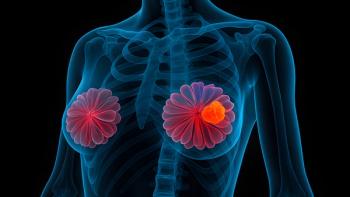
Connect Your Patients With Pancreatic Cancer Clinical Trial Options
Finding treatment options, helping patients, and contributing to clinical research just got easier.
Being diagnosed with pancreatic cancer can generate many questions for patients, and providing the most relevant, helpful information can be a challenge for the healthcare team. Knowing some basic information about pancreatic cancer clinical trials—and knowing how to access helpful resources, such as the
The Clinical Trial Finder is a new online tool that gives healthcare professionals access to the Pancreatic Cancer Action Network’s comprehensive pancreatic cancer clinical trial database—containing the most up-to-date information in the United States. Healthcare professionals can search trials by general or patient-specific parameters and export the results.
Pancreatic cancer is one of the nation’s deadliest cancers with a 5-year relative survival rate of just 7%. An estimated 72% of patients will die within a year of diagnosis. There are few effective treatment options for patients, making clinical trial participation for this cancer paramount to the research process as scientists seek new and better treatments. Studies have determined that both a lack of awareness and low prioritization of clinical trials by physicians and patients facing cancer contribute to low enrollment rates. The Pancreatic Cancer Action Network strongly recommends that all patients consider clinical trials each time a treatment decision is made, including at diagnosis.
Clinical trials occur in various healthcare settings across the country, from academic institutions to community practices, which means oncology nurses are likely to encounter pancreatic cancer patients who are considering participating, actively participating, or have previously participated in a clinical trial. Nurses can play a vital role in educating their patients about trials and helping them weigh their treatment options.
You can help your patients through this process. Use Clinical Trial Finder to help locate clinical trials that are relevant for your patients. Then, share these facts with them to enhance their understanding of pancreatic cancer clinical trials:
Participating in a clinical trial may benefit current patients, and help others with pancreatic cancer in the future.
Clinical trials may be the best option for a patient facing cancer, particularly in a disease like pancreatic cancer. Current US national guidelines recommend enrollment in a clinical trial for patients with pancreatic cancer, and patients who participate in a trial may benefit from receiving cutting-edge treatment. Importantly, clinical trials are the only way that researchers can develop new treatment options. Patients who participate in trials can make treatment progress possible.
Patients can find clinical trials near their home.
The Pancreatic Cancer Action Network has the nation’s most up-to-date pancreatic cancer clinical trial database and highly-trained associates that can guide you through the entire process.
There are eligibility criteria for each clinical trial.
Participants in a clinical trial must meet specific requirements. The criteria vary between studies and may include a number of factors including current health status, type and stage of cancer, treatment history, and age. Criteria are important in order to identify a patient population with enough in common to be able to determine whether or not the treatment helped. It is also important to know that many clinical trials are for patients who have never been treated for that disease.
Placebos are never used in place of standard cancer treatment.
Participants in a cancer clinical trial will receive either the standard of care treatment option or the new treatment. Placebos are sometimes given with the standard treatment, which is the same as getting the standard treatment alone.
Patients can opt out of a clinical trial at any time.
Patients have the right to decline involvement in a clinical trial at any time, even after signing up or once treatment has started. Their doctors will then switch to the standard of care or another treatment option for their specific condition.
Currently, only 4.5% of pancreatic cancer patients enroll in clinical trials despite the fact that trials are often the best treatment option. The Clinical Trial Finder is just one the many initiatives the Pancreatic Cancer Action Network has designed to assist patients and provide research information that can be used to improve the lives of future patients. To learn more about the Pancreatic Cancer Action Network’s Clinical Trial Finder, please visit
______________________________________________________________________________
Anitra Engebretson is director of Clinical initiatives, Pancreatic Cancer Action Network.
Newsletter
Knowledge is power. Don’t miss the most recent breakthroughs in cancer care.
















































































